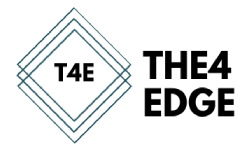Introduction
The mortgage industry remains a lucrative space, driven by a continuous demand for housing and property investments. For those with an entrepreneurial spirit and a passion for finance, the idea of starting your own mortgage brokerage can be both exciting and rewarding. A mortgage brokerage bridges the gap between borrowers and lenders, offering tailored solutions to clients while generating significant business opportunities. However, setting up a brokerage is no small feat—it requires careful planning, licensing, and a solid business strategy. In this blog, we’ll explore the key steps to building a successful mortgage brokerage and share insights on navigating the challenges along the way.
What Does a Mortgage Brokerage Do?
A mortgage brokerage connects clients with a variety of lenders, helping them secure home loans or other types of financing. Unlike working directly with a single bank, a mortgage brokerage offers clients access to multiple lending options, ensuring competitive rates and personalised service. Running a mortgage brokerage involves acting as an intermediary, building lender relationships, and guiding clients through the often-complex loan application process.
The flexibility and diversity of offerings make mortgage brokerages essential for modern borrowers. As a business owner, you’ll not only play a pivotal role in the industry but also have the opportunity to create a sustainable and profitable enterprise.
Steps to Start Your Own Mortgage Brokerage
- Conduct Thorough Market Research
- Start by analysing the demand for mortgage brokerage services in your region. Are there underserved areas or specific demographics you can target?
- Study competitors to understand their strengths and weaknesses. Learn what makes them successful and identify gaps that your brokerage can fill.
- Develop a Business Plan
- Your business plan should outline your goals, target market, budget, and projected revenue.
- Include details about your unique selling points (e.g., specialised loan products, outstanding customer service, or digital tools).
- Obtain Licensing and Certification
- Ensure you meet the regulatory requirements to operate as a mortgage broker. This typically involves obtaining a mortgage broker licence, registering your business, and adhering to local and national financial laws.
- Consider pursuing professional certifications to establish credibility and attract clients.
- Build Relationships with Lenders
- Establish partnerships with a variety of financial institutions, including banks, credit unions, and private lenders.
- Negotiate favourable terms to expand the range of loan options you can offer your clients.
- Set Up Operations
- Choose whether to operate from a physical office or embrace a virtual setup. Both options have their advantages, depending on your target market and budget.
- Invest in software for loan management, customer relationship management (CRM), and financial analysis to streamline your operations.
- Recruit and Train a Skilled Team
- Surround yourself with knowledgeable professionals who share your commitment to providing exceptional service.
- Conduct regular training to keep your team updated on industry trends, new regulations, and emerging technologies.
- Launch a Strong Marketing Strategy
- Use digital marketing techniques like search engine optimisation (SEO), social media, and email campaigns to build your brand.
- Network with real estate agents, financial advisors, and other industry professionals to gain referrals.
Challenges You May Encounter
Running your own mortgage brokerage comes with its challenges:
- Regulatory Compliance: Staying on top of constantly changing laws and regulations can be daunting. Regular training and legal counsel are essential.
- Building Client Trust: Establishing your reputation as a trustworthy broker takes time, especially if you’re new to the market.
- Market Competition: With numerous brokerages vying for clients, differentiating yourself is key.
By addressing these challenges head-on, you can build a resilient and competitive brokerage.
Conclusion
Starting your own mortgage brokerage is an exciting venture that offers both personal and financial rewards. By following a structured approach—conducting thorough research, obtaining the necessary licences, building strong lender relationships, and marketing effectively—you can create a business that stands out in the competitive mortgage industry. With determination, the right resources, and a focus on client satisfaction, your mortgage brokerage can grow into a successful and sustainable enterprise.






